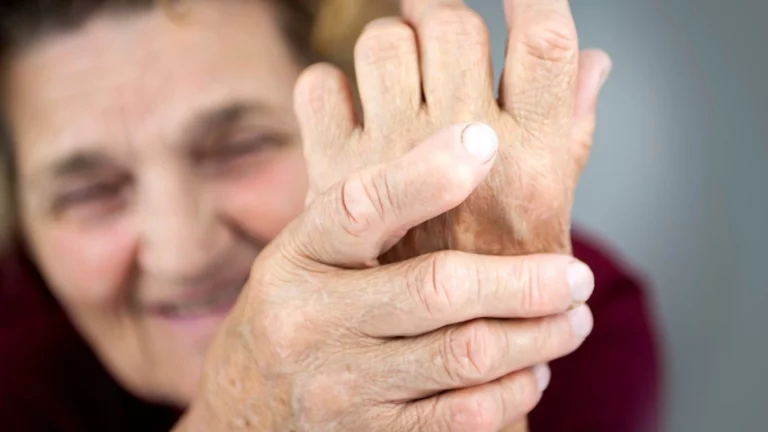Rheumatoid Arthritis and Weight Loss Tips: How to Manage Your Health
Struggling with weight loss while managing rheumatoid arthritis (RA)? You’re not alone! Let’s explore how you can approach weight loss in a way that helps support your joints, reduce inflammation, and make your life a little easier.
Rheumatoid arthritis (RA) is a chronic autoimmune condition that affects your joints, causing inflammation, pain, and sometimes disability. One of the challenges people with RA often face is maintaining a healthy weight. The extra weight can put added pressure on already inflamed joints, especially the knees, hips, and lower back. On top of that, some medications used to treat RA can lead to weight gain. But don’t worry—there are practical ways to tackle weight loss without hurting your joints, and it starts with understanding the connection between RA and weight management.
In this article, we’ll dive into some effective weight loss tips that are not just about shedding pounds but also supporting your joints and overall health.

Why Weight Loss Is Important for RA Patients
When you have RA, your body’s immune system mistakenly attacks its own tissues, particularly the joints. This results in inflammation, stiffness, and pain. If you’re overweight or obese, extra pounds can worsen these symptoms, putting more strain on your joints. Carrying extra weight can also contribute to increased inflammation, which is a core issue in RA.
Studies show that people with RA who are overweight or obese experience more severe symptoms and may face higher risks for disability. Weight loss can, in turn, improve joint function, reduce pain, and even lower the risk of other health complications, such as heart disease, diabetes, and hypertension, which are more common in people with RA.

Smart Weight Loss Strategies for Rheumatoid Arthritis
There are several ways to approach weight loss if you have rheumatoid arthritis. But it’s essential to be mindful of how your choices affect your joints. These tips are designed to help you lose weight while managing your RA symptoms.
1. Focus on an Anti-Inflammatory Diet
An anti-inflammatory diet can help you manage RA symptoms while also supporting your weight loss goals. Certain foods can help fight inflammation, while others can trigger it. Here’s a simple guide:
- Eat More Omega-3 Fatty Acids: Foods like fatty fish (salmon, sardines, mackerel), walnuts, and flaxseeds are rich in omega-3 fatty acids, which help reduce inflammation in the body.
- Add Colorful Vegetables and Fruits: Colorful veggies and fruits—like berries, leafy greens, carrots, and bell peppers—are high in antioxidants, which help combat inflammation and promote overall health.
- Opt for Whole Grains: Swap refined grains for whole grains like brown rice, quinoa, and oats. These complex carbs release energy more slowly, which helps keep your blood sugar levels stable and your weight in check.
- Limit Processed Foods and Sugars: Processed foods, sugary snacks, and refined carbs can trigger inflammation and lead to weight gain. Instead, choose natural, nutrient-dense foods that keep your body fueled without causing inflammation.

2. Stay Active with Joint-Friendly Exercises
Exercise is essential for weight loss, but you don’t want to put unnecessary strain on your joints. RA can make movement painful, so it’s important to choose exercises that are gentle yet effective.
- Low-Impact Aerobics: Activities like swimming, cycling, and walking are great for burning calories without putting too much pressure on your joints.
- Strength Training: Building muscle mass is key to boosting metabolism and supporting joint health. Use light weights or resistance bands, focusing on slow, controlled movements.
- Yoga or Pilates: These exercises focus on flexibility, balance, and strengthening muscles in a low-impact way. They can help reduce stiffness and improve range of motion in your joints.
- Stretching: Gentle stretching can help relieve muscle tension and increase mobility in your joints. Incorporating stretching into your routine can also prevent injuries and make daily activities easier.
If you’re new to exercising with RA, it’s always a good idea to check with your doctor or physical therapist to develop a plan that works for your specific condition.
Conclusion
Weight loss for individuals with rheumatoid arthritis requires a delicate balance of reducing inflammation, protecting joints, and maintaining overall health. By focusing on an anti-inflammatory diet, staying active with joint-friendly exercises, prioritizing hydration, and managing stress, you can achieve sustainable weight loss while minimizing the impact on your RA symptoms.
Remember, it’s not about rapid weight loss—it’s about finding a long-term solution that works for you. Your joints, your health, and your comfort matter, so take the time to create a weight loss plan that fits your life and helps you feel your best.
Appendices
References
- Arthritis Foundation. (2023). Weight Loss and Arthritis: What You Need to Know. Read More
- Mayo Clinic. (2024). Rheumatoid Arthritis: Diet and Lifestyle Tips. Read More
- National Institutes of Health (NIH). (2022). The Impact of Obesity on Rheumatoid Arthritis. Read More
FAQs
- Can losing weight help reduce RA symptoms? Yes, losing weight can reduce pressure on your joints, lower inflammation, and improve overall mobility.
- Are there any foods I should avoid while trying to lose weight with RA? Avoid processed foods, sugary snacks, and refined grains, as they can trigger inflammation and interfere with weight loss.
- What is the best type of exercise for RA patients trying to lose weight? Low-impact exercises like swimming, cycling, and walking are ideal for RA patients. Strength training and yoga are also great for building muscle and improving flexibility.
- Can stress impact my RA symptoms and weight loss efforts? Yes, stress can increase inflammation, worsen RA symptoms, and hinder weight loss. Managing stress through mindfulness and relaxation techniques is important.
- How quickly should I expect to lose weight with RA? Aim for a gradual weight loss of 1-2 pounds per week. Rapid weight loss can negatively affect your health and worsen RA symptoms.
Disclaimer: The information provided in this article is for educational purposes only and does not substitute for professional medical or dietary advice. Always consult with your healthcare provider regarding any concerns related to rheumatoid arthritis, weight loss, or diet. Individual needs may vary, and professional guidance is crucial for personalized care.

Tarra Nugroho is a dedicated Nurse Practitioner with a strong foundation in family and preventive care. She brings both compassion and clinical expertise to her practice, focusing on patient-centered care and health education. As a contributor to Healthusias.com, Tarra translates medical knowledge into clear, empowering articles on topics like women’s health, chronic disease management, and lifestyle medicine. Her mission is simple: help people feel seen, heard, and informed—both in the clinic and through the content she creates. When she’s not caring for patients, Tarra enjoys weekend hikes, plant-based cooking, and curling up with a good health podcast.







